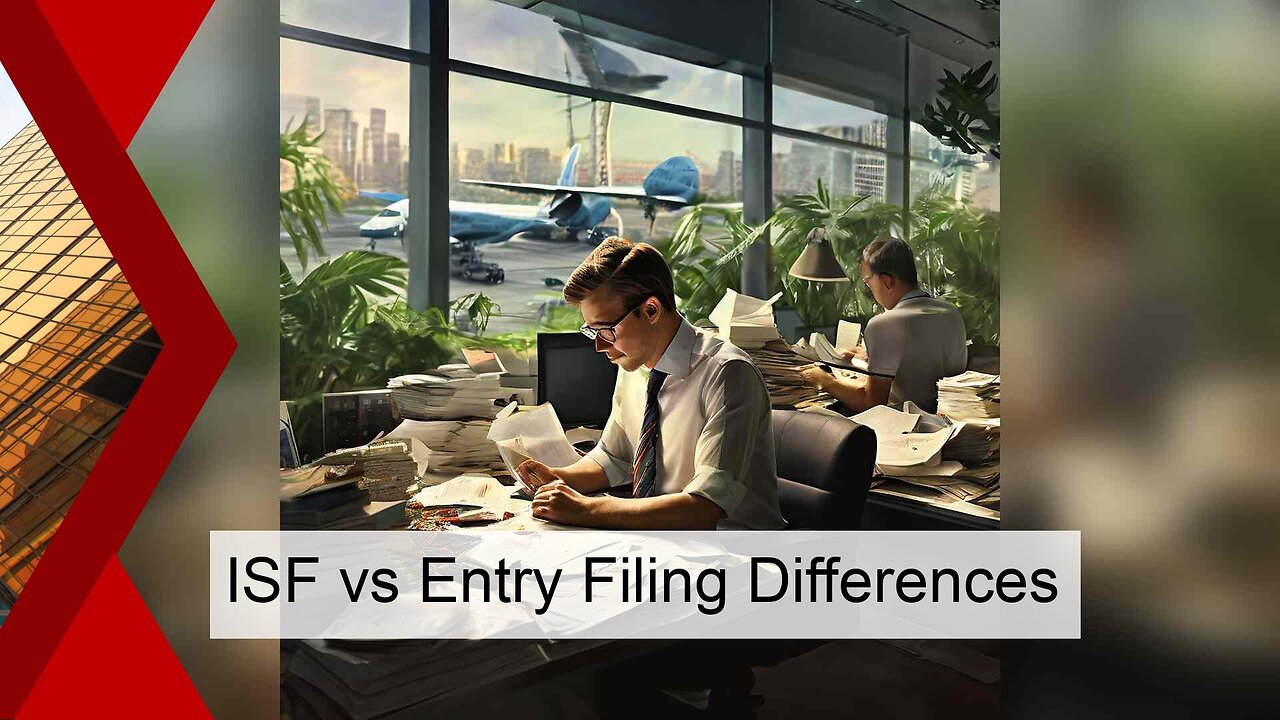Premium Only Content

Demystifying ISF Filing vs. Entry Filing: Key Differences Unveiled!
ISF Depot // 661-246-8217 // customs@isfdepot.com // www.isfdepot.com
In this episode of Customs Brokerage Insights, we explore the key differences between Importer Security Filing (ISF) and Entry Filing, two crucial processes in customs brokerage. ISF filing is a mandatory process that enhances supply chain security by requiring importers or their appointed customs brokers to provide specific information about their shipments to US Customs and Border Protection (CBP) before the cargo is loaded onto the vessel. On the other hand, entry filing is the submission of detailed information to CBP after the cargo arrives at the port of entry, helping CBP assess admissibility, calculate duties, and monitor compliance with trade laws and regulations. The main differences between ISF filing and entry filing lie in the timing and purpose of each process. Non-compliance with these requirements can lead to penalties, cargo holds, delayed clearance, additional fees, or even seizure of goods. Understanding these differences is vital for importers and customs brokers to ensure smooth and compliant import operations.
#usimportbond #isfcustomsbroker #uscustomsclearing #isfentry
Video Disclaimer Here: This tutorial is independent and not affiliated with any US governmental entities.
0:30 ISF Filing
Mandatory process for importers to provide specific information to CBP before cargo is loaded onto the vessel.
Enhances supply chain security and improves risk assessment capabilities.
Responsibility of the importer or their appointed customs broker.
Key information includes buyer and seller details, HTS codes, country of origin, and manufacturer's information.
Must be submitted within 24 hours before vessel departure to avoid penalties and delays.
1:00 Entry Filing
Process of submitting detailed information to CBP after the cargo arrives at the port of entry.
Helps CBP assess admissibility of goods, calculate duties, and monitor compliance with trade laws.
Requires comprehensive data such as invoice value, item quantity, duty exemptions, and supporting documents.
Customs brokers or importers are responsible for providing this information.
Ensures legal compliance and proper clearance of goods.
1:29 Key Differences
ISF filing focuses on supply chain security and risk assessment before vessel departure.
Entry filing is concerned with admissibility, duty calculation, and legal compliance after cargo arrival.
Timing and purpose are main distinctions between the two processes.
Understanding these differences is crucial for smooth and compliant import operations.
Working with experienced customs brokers is recommended to navigate through these processes successfully.
-
 1:07:03
1:07:03
Tucker Carlson
2 hours agoMother of Likely Murdered OpenAI Whistleblower Reveals All, Calls for Investigation of Sam Altman
79.1K45 -
 55:44
55:44
LFA TV
9 hours agoCongress Humiliates Itself | TRUMPET DAILY 1.15.25 7pm
20.9K8 -

2 MIKES LIVE
4 hours ago2 MIKES LIVE #167 News Breakdown Wednesday!
12.9K12 -
 LIVE
LIVE
Quite Frankly
7 hours ago"Fahrenheit 2025: Drone Hysteria, The Fog, Smart L.A." ft. Elana Freeland 1/15/25
1,428 watching -
 1:43:00
1:43:00
Redacted News
5 hours agoBREAKING! CAPITOL POLICE ON HIGH ALERT OVER ATTEMPTS AGAINST TRUMP, MEDIA SILENT | Redacted
141K219 -
 51:09
51:09
Candace Show Podcast
4 hours agoHILARIOUS! TikTok Ban Backfires | Candace Ep 133
107K113 -
 LIVE
LIVE
Dr Disrespect
9 hours ago🔴LIVE - DR DISRESPECT - WARZONE - NO MERCY
2,422 watching -
 LIVE
LIVE
Mally_Mouse
2 hours agoLet's Hang!! -- P.O.Box opening! & Stardew Valley pt. 20!
148 watching -
 1:17:31
1:17:31
The Amber May Show
5 hours ago $1.01 earnedDeep Dive On The California Fires | Gulf of 'Merica | Alan Sanders
20.6K2 -
 5:32
5:32
Rethinking the Dollar
8 hours agoHolding 0.001 Bitcoin Could Make You a Millionaire – Here’s Why You’re the Elite
26K7